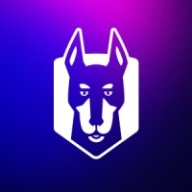

Snyk and Azure Kubernetes Service (AKS) compete in the cybersecurity and cloud service management categories, respectively. Snyk has an upper hand due to its simplicity and cost-effectiveness, particularly in self-service capabilities and customer support.
Features: Snyk is valued for its simplicity, extensive integrations, and accurate vulnerability scanning capabilities. It offers robust Slack integration for real-time alerts and supports various cloud environments. In comparison, AKS is recognized for its powerful compliance features, advanced orchestration capabilities, and seamless integration with Azure Security, enhancing its enterprise application management abilities.
Room for Improvement: Snyk could enhance its offering by integrating advanced security scanning features like SAST or DAST, expanding language support, and improving scanning speeds and notification controls. AKS users suggest improvements in technical support response times, monitoring functionalities, and enhancing UI usability to boost accessibility for smaller organizations.
Ease of Deployment and Customer Service: Snyk provides flexibility with support across public, private, and hybrid clouds, praised for responsive customer service and direct engineer access. On the other hand, AKS is predominantly deployed in public and private clouds and is noted for strong customer service, but users often appreciate Snyk's supportive community and swift issue resolution.
Pricing and ROI: Snyk offers competitive pricing, seen as providing good value for its features with scalable licensing that reduces vulnerability fix times. AKS, though considered expensive due to additional resource costs, provides flexible pay-as-you-go options. The scalability and manageability of AKS contribute to its perceived ROI, although cost concerns remain when compared with competitors.
I can see that Snyk saves the costs of hiring security developers for vulnerability scanning and security checks, as that responsibility is now managed by Snyk.
They are very fast to respond and begin analysis to resolve problems.
Our long-standing association has ensured smooth communication, resulting in favorable support experiences and satisfactory issue resolution.
Their response time aligns with their SLA commitments.
We could understand the implementation of the product and other features without the need for human interaction.
AKS offers excellent scalability due to its adaptation from Kubernetes.
Snyk allows for scaling across large organizations, accommodating tens of thousands of applications and over 60,000 repositories.
Snyk is very scalable and can handle my organization's growth and changing needs.
From my usage, I would rate its stability as eight to nine out of ten.
It's very stable, and the support is satisfactory.
The costs are rising rapidly, and we have not seen any cost reductions by moving to Azure.
It is costly compared to other solutions such as Canonical.
It lacks the ability to select branches on its Web UI, forcing users to rely on CLI or CI/CD for that functionality.
The inclusion of AI to remove false positives would be beneficial.
As we are moving toward GenAI, we expect Snyk to leverage AI features to improve code scanning findings.
Transitioning to Azure did not bring cost reductions; in fact, costs are rising rapidly.
The solution is very expensive in my opinion.
The pricing for Azure Kubernetes Service seems to be around the average, which I would rate as a five out of ten.
Snyk is recognized as the cheapest option we have evaluated.
After negotiations, we received a special package with a good price point.
Snyk is less expensive.
The most valuable features of Azure Kubernetes Service are its integration with Kubernetes, offering similar features for a seamless experience.
Since pricing is not a major concern, we chose the best fit for our application, which was specifically designed for this particular platform.
The integration with Azure Active Directory helped with the security of our applications.
Our integration of Snyk into GitHub allows us to automatically scan codebases and identify issues, which has improved efficiency.
Snyk helps detect vulnerabilities before code moves to production, allowing for integration with DevOps and providing a shift-left advantage by identifying and fixing bugs before deployment.
Snyk has positively impacted my organization by improving the security posture across all software repositories, resulting in fewer critical vulnerabilities, more confidence in overall product security, and faster security compliance for project clients.
| Product | Market Share (%) |
|---|---|
| Snyk | 4.8% |
| Azure Kubernetes Service (AKS) | 0.9% |
| Other | 94.3% |


| Company Size | Count |
|---|---|
| Small Business | 15 |
| Midsize Enterprise | 7 |
| Large Enterprise | 22 |
| Company Size | Count |
|---|---|
| Small Business | 21 |
| Midsize Enterprise | 9 |
| Large Enterprise | 21 |
Azure Kubernetes Service (AKS) is a fully managed container orchestration service provided by Microsoft Azure. It simplifies the deployment, management, and scaling of containerized applications using Kubernetes. With AKS, developers can focus on building applications while Azure takes care of the underlying infrastructure. It offers features like automatic scaling, monitoring, and security, ensuring high availability and reliability. AKS integrates seamlessly with other Azure services, enabling easy integration with existing workflows. It also provides a flexible and open-source environment, allowing developers to use their preferred tools and frameworks. With AKS, organizations can accelerate their application development and deployment processes, while reducing operational overheads.
Snyk excels in integrating security within the development lifecycle, providing teams with an AI Trust Platform that combines speed with security efficiency, ensuring robust AI application development.
Snyk empowers developers with AI-ready engines offering broad coverage, accuracy, and speed essential for modern development. With AI-powered visibility and security, Snyk allows proactive threat prevention and swift threat remediation. The platform supports shifts toward LLM engineering and AI code analysis, enhancing security and development productivity. Snyk collaborates with GenAI coding assistants for improved productivity and AI application threat management. Platform extensibility supports evolving standards with API access and native integrations, ensuring comprehensive and seamless security embedding in development tools.
What are Snyk's standout features?Industries leverage Snyk for security in CI/CD pipelines by automating checks for dependency vulnerabilities and managing open-source licenses. Its Docker and Kubernetes scanning capabilities enhance container security, supporting a proactive security approach. Integrations with platforms like GitHub and Azure DevOps optimize implementation across diverse software environments.
We monitor all Container Security reviews to prevent fraudulent reviews and keep review quality high. We do not post reviews by company employees or direct competitors. We validate each review for authenticity via cross-reference with LinkedIn, and personal follow-up with the reviewer when necessary.